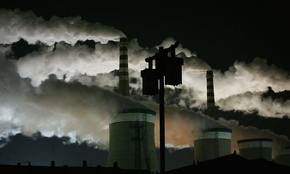Australian industry super fund HESTA has become the first established fund in Australia to announce that it is restricting investments in thermal coal.
The fund announced the move on Friday, following a meeting of its board. The restrictions will apply across its $29 billion portfolio, rather than just a few “responsible fund” products, which has been the case for other funds.
 The announcement came in the same week that Simon Sheikh announced the creation of a new fund that will focus on fossil free investments – a move that many analysts said would have a big impact on the industry and its investment patterns.
The announcement came in the same week that Simon Sheikh announced the creation of a new fund that will focus on fossil free investments – a move that many analysts said would have a big impact on the industry and its investment patterns.
Super funds and banks are becoming under increased pressure to divest thermal coal and other fossil fuel investments and account for their lending and direct equity portfolios.
Investment bank HSBC this week coined a new expression – 2°C finance – to describe those investments which are consistent with reaching the climate goals that every government has signed up to, but are yet to act on.
CEO Anne-Marie Corboy said HESTA’s Investments and Governance Team expects that the push to limit global warming, through a reduction in the burning of carbon, is likely to impact investments in fossil fuel reserves in the long term.
“This ‘unburnable carbon’ is likely to become an increasing risk in the medium to long term, especially for companies heavily invested in thermal coal, or those seeking to develop new long-term assets,” Corboy said in a statement.
“HESTA is of the view that, new or expanded thermal coal assets face the highest risk of becoming stranded before the end of their useful life.
“It is not prudent, nor in the long-term interest of members, to invest in the expansion of these assets.”
Corboy described the restriction as another step in the Fund’s ongoing response to the increasing impact of climate change on its long-term investments.
“The push to limit the impact of global warming requires economies to move to a lower-carbon intensive future and investors have an important role to play in this transition,” Ms Corboy said.
“HESTA believes that further investment in developing new, or expanding existing, thermal coal reserves is inconsistent with this imperative to reduce carbon emissions.”
Under the new restriction, HESTA will not make new investments in unlisted companies that derive more than 15% of revenue or net asset value from exploration, new or expanded production, or transportation of thermal coal.
In addition, HESTA will not invest in any newly listed companies — from listing onwards — that derive more than 15% of revenue or net asset value from exploration, or new or expanded production, of thermal coal.
HESTA is the fund for health and community services, with more than $29 billion in assets, 785,000 members and 155,000 employers.










